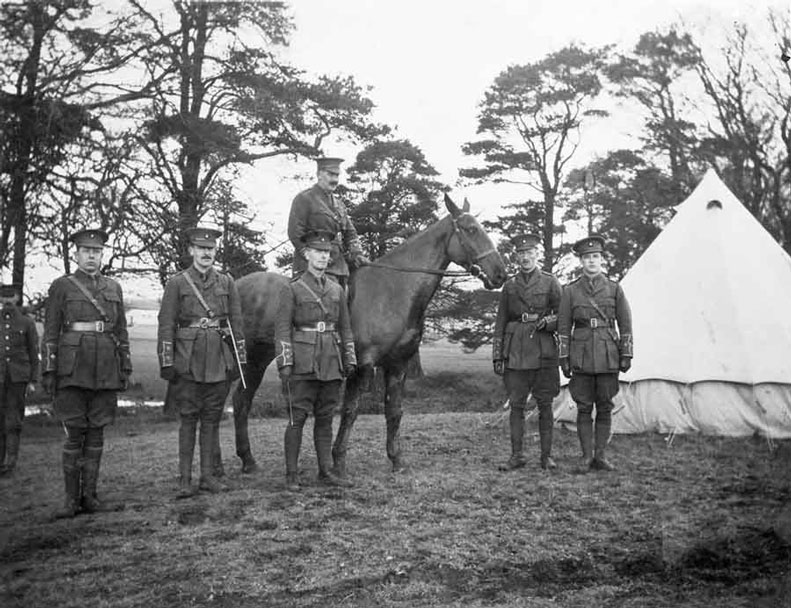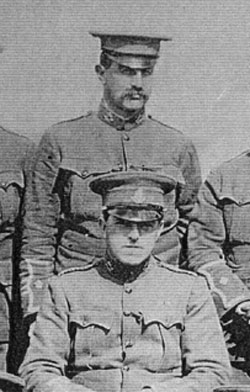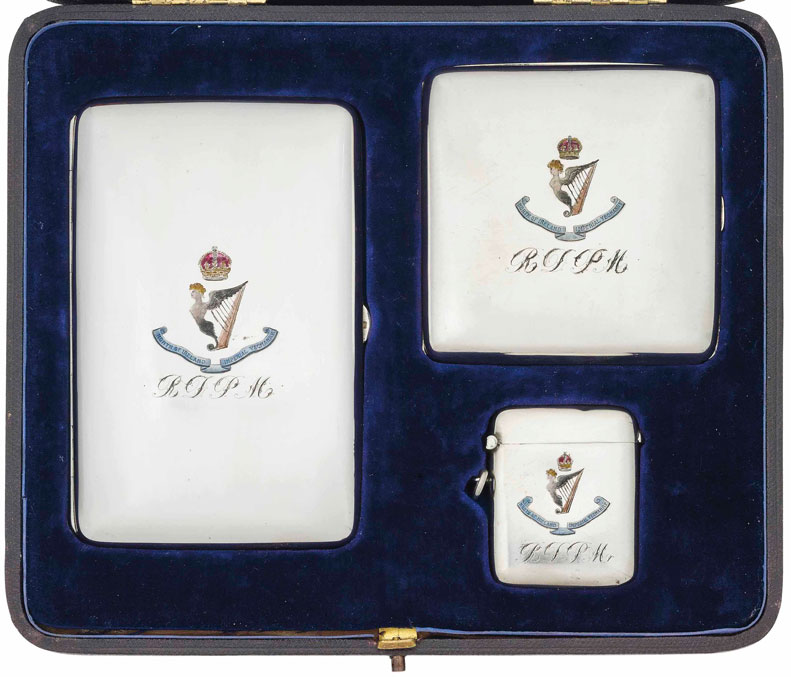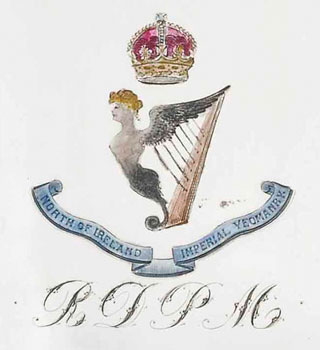Lieutenant-Colonel Robert David Perceval-Maxwell

Robert David Perceval-Maxwell was born on 29 March 1870, the only son of John Perceval-Maxwell, of Finnebrogue House, Downpatrick. Educated at Eton College, he was commissioned second lieutenant in the 3rd Battalion Duke of Wellington’s (West Riding) Regiment on 11 February 1888 and promoted to lieutenant on 26 October 1889. He resigned his commission on 16 December 1893.
Perceval-Maxwell joined the North of Ireland Imperial Yeomanry, predecessor to the North Irish Horse, on 17 July 1903. He served as major in command of A Squadron (Belfast). He resigned from the regiment on 25 February 1905.
Following the outbreak of war in August 1914 he played a prominent role in raising the 36th (Ulster) Division. In December he was commissioned as a major (backdated to 21 September), and made second-in-command of the 13th Battalion, Royal Irish Rifles, which he had raised. He went to France with his battalion in October 1915.
On the night of 28 June he was wounded by shrapnel at Martinsart, as described by Oliver Nugent, commanding the 36th (Ulster) Division:
Bob Maxwell was wounded last night, but very slightly, a piece of shell in the shoulder. He will I hope be out again almost at once. He has gone to the nearest Field Hospital. A shell burst in the middle of a party of men starting off to the trenches, killed 14 and wounded 44. It was the worst piece of bad luck. Bob Maxwell was standing close by.
He was evacuated to England where he recovered and returned to his battalion by the end of 1916.
On 16 November 1916 Perceval-Maxwell was promoted to temporary lieutenant-colonel and put in command of the 13th Battalion.
On 16 August 1917 during the Battle of Langemarck (part of Third Ypres) Perceval-Maxwell was wounded again, this time by a machine-gun bullet through the left thigh. Nugent wrote in a letter to his wife:
Bob Maxwell I grieve to say was last seen wounded and lying out in front and we have been driven in since then and he was not brought back.
... P.S Just heard Bob Maxwell has been got in and is in the Field Ambulance, shot through thigh but nothing serious.
He was evacuated to England and recovered, returning to the 36th (Ulster) Division in France early in 1918. On 1 January 1918 he was awarded a Distinguished Service Order.
On 9 April 1918 Nugent wrote:
I had to send Bob Maxwell to command a battalion owing to the shortage of COs, but he doesn’t want to go and says quite frankly his nerves are not equal to taking the strain with a new battn of men from all parts, all strangers to him, so I told him to write to me officially and say so and I would try and get him a home job. After all, he isn’t a soldier, he has been twice wounded and has 2 sons out here who have been wounded and I don’t blame him for wanting to get home. I am sorry he was ever sent out again.
On 16 May 1918 Perceval-Maxwell was put in command of the 2nd (Home Service) Garrison Battalion, Royal Munster Fusiliers.
His son Richard Henry was killed in action on 23 July 1918.
He relinquished his commission on 9 January 1919.
Perceval-Maxwell was appointed to the Privy Council of Ireland in July 1921. He served in the Northern Ireland Senate from 1921 to 1925.
He died in Belfast on 24 May 1932.


The Belfast News-Letter, 24 August 1917

Perceval-Maxwell's cheroot case, cigarette case and vesta case enamelled with the badge of The North of Ireland Imperial Yeomanry above his initials, the first two with richly gilded interiors, all in original fitted case lined in blue silk and velvet and retailed by Sidney W. Campbell, Jeweller, Belfast - sold at auction a number of years ago

Image 1, showing Perceval-Maxwell with officers of the 13th Battalion RIR in France in 1916, is sourced from http://peterneill.net/projects/evocation/. Image 2 appears to be Perceval-Maxwell (standing) with officers of the North of Ireland Imperial Yeomanry in 1904.
